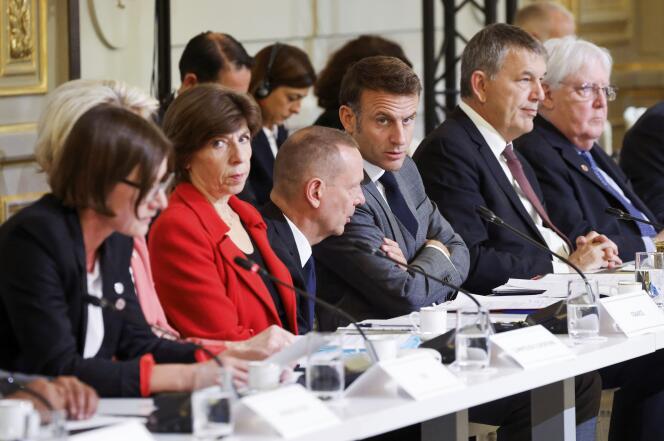


While the initiative failed to achieve a major breakthrough, it was at least the first concerted international effort to come to the aid of Palestinian civilians trapped by the war in the Gaza Strip. As fighting continues to rage in the enclave, President Emmanuel Macron convened a meeting at the Elysée on Thursday, November 9, attended by dozens of Arab, Western and emerging countries, as well as numerous international organizations. It aimed to address the multiple humanitarian challenges arising from Israel's retaliation, a little over a month after the October 7 terrorist attacks on its soil.
At the opening of the debates, Macron changed his position, as if to send a signal to the many guests present, who were keen to demand an immediate ceasefire in order to protect civilians as much as possible. According to the administration of the Hamas-controlled territory, the fighting has already claimed more than 10,800 lives in the Gaza Strip. After asking for "a humanitarian pause as soon as possible," the president called for "working towards a ceasefire," for the first time. A prospect that Israel continues to reject, to better pursue its hunt for Hamas fighters.
This slight shift in the president's stance did not prevent the various speakers from insisting on the responsibility of Israeli authorities. "Thousands of children killed cannot be collateral damage, pushing a million people from their home and concentrating them in areas without adequate infrastructure is false displacement, severely limiting food, water and medicine is collective punishment," denounced Philippe Lazzarini, commissioner-general of the United Nations Relief and Works Agency for Palestine Refugees in the Near East (UNRWA), which, according to this Swiss official, has already suffered 99 deaths among its employees in the territory. "Condemning the horrendous massacre committed by Hamas in Israel is the right thing to do, the UN has done so and continues to call for hostages to be released. This cannot, however, justify a war that disregards international humanitarian law," Lazzarini added.
According to Egyptian Foreign Minister Sameh Shoukry, "the aid that has already entered Gaza [through the Rafah terminal on the Egyptian side] is not sufficient to meet the needs of the entire population, and the deliberate complications imposed by Israel on these deliveries are leading to a further deterioration of the situation."
"How many Palestinians will have to be killed before the war finally stops?" asked Palestinian Authority Prime Minister Mohammad Shtayyeh. "What Israel is doing is not a war against Hamas, it's a war against all the Palestinian people."
You have 60% of this article left to read. The rest is for subscribers only.
